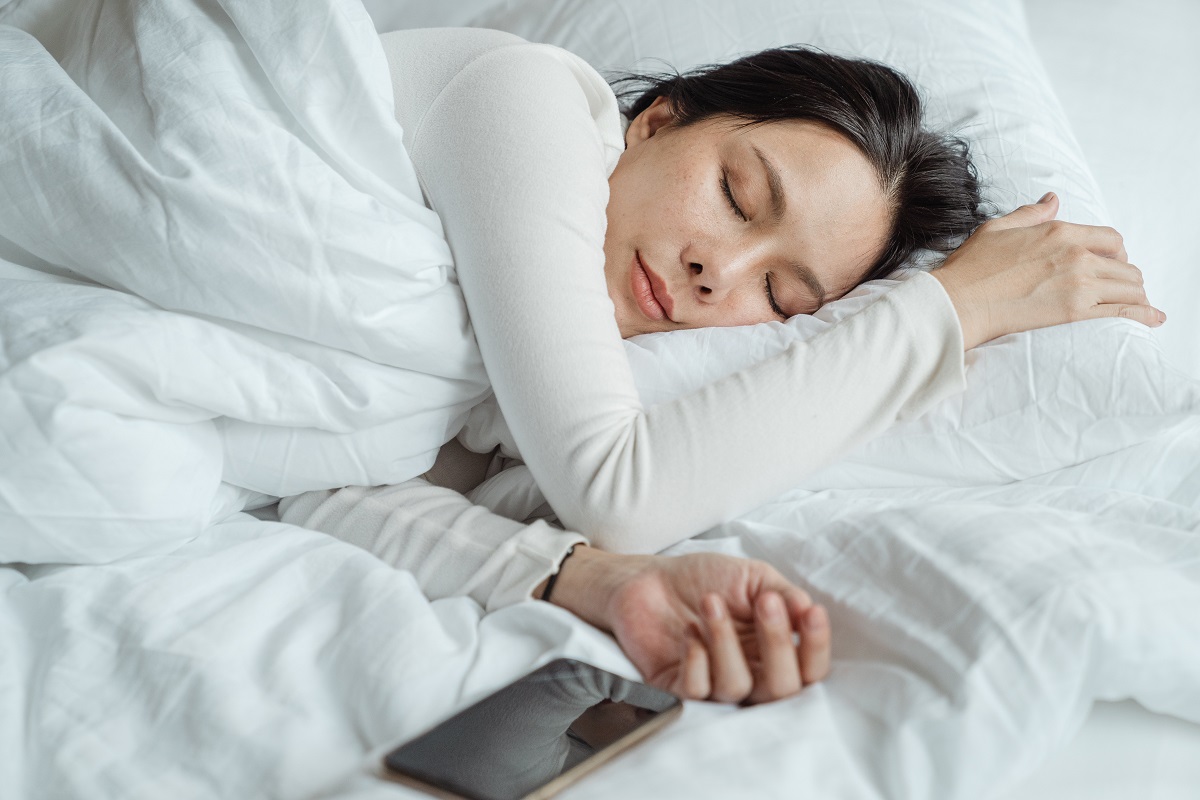THE DAILY DOSE
How Your Quality Of Sleep Can Influence Immune Function

Getting enough sleep in today’s fast-paced world is a challenge. We have to maintain social, professional, and family lives, take care of household duties, make food, exercise… The list goes on. Because of all these factors, many people are unable to get the quality and quantity of sleep that they need to wake up feeling rested, restored, and ready to take on another day.
What many people don’t consider when they think about their personal sleep habits is the detrimental effects that poor sleep can have on overall health. Several health issues can be tied to a lack of good-quality sleep, including high blood pressure, diabetes, heart attacks, stroke, and other cardiovascular diseases.
Considering how serious these diseases and conditions can be, it’s important that we think more critically about our sleep. As well as the specific issues mentioned above, sleep can also affect how well your body’s general defense system functions. But how does sleep influence immunity, exactly? Read on for all you need to know about how your quality of sleep can influence immune function.
Sleep quality and immune function
It can be difficult to commit to proper sleep habits if you don’t properly understand how sleep affects your body overall, or how it contributes to keeping you as healthy as possible for as long as possible.
The reason why sleep is so important for immunity is because of the way it ties into the circadian rhythm, which is the body’s internal clock. Also known as the circadian cycle, this function regulates the body’s sleep–wake cycle – the natural cycle that prepares you for sleep and then wakes you back up again. This natural cycle is crucial in giving the body the time it needs to rest and refresh for the upcoming day.

When considering the circadian rhythm to the immune system, studies have found a symbiotic link between the two. The circadian rhythm plays a role in the processes that need to be constantly regulated for immune cells to be properly produced.
For example, the immune system relies heavily on T-cells, which are produced to fight off pathogens and ward off disease and infection. The circadian rhythm’s role to make sure that T-cells are produced and released into the bloodstream in proper amounts and at the right time so that the body can use them effectively.
Other aspects of the immune system known as cytokines are also heavily influenced by sleep. Cytokines are specific proteins released by immune cells that help with proper immune function. They also aid the body in cell signaling processes, which are important for many other systems.
When it comes to the immune system, these proteins can control the deployment of other immune cells that are needed to fight off infection when a pathogen invades the body. Essentially, they are the alarm system that goes off to alert the immune cells to respond to the threat. When someone gets proper sleep, their cytokines work as they should, and the immune system can fight another day. However, when they don’t, this aspect of immunity is compromised.
How are proper sleep and immunity linked?
Proper sleep and immunity are linked because of how sleep affects the action of immune cells and other processes that are required to alert the immune system to take action against pathogens.
T-cells, which we mentioned above, are designed to fight against pathogens that can reproduce inside the cells of the host they have infected. One particular study examined how T-cells were affected by sleep, and found that it is essential for a person to get enough good quality shut-eye in order for these cells to work. This is because of the way T-cells rely on certain molecules known as integrins.
Integrins provide adhesion that allows T-cells that come into contact with a pathogen to target, attach, and obliterate it. Without proper “stickiness”, this task becomes much harder and some pathogens can evade T-cells entirely. So what does this have to do with sleep?
When the body and brain are at rest, the adhesive capabilities of these molecules are much higher than when you’re awake. During sleep, immune cells also peak in specific areas of the body, such as in the lymph nodes. This peak is due to the hormone known as cortisol, otherwise known as the stress hormone. Levels of cortisol go up and down at various points of the day. Right before falling asleep, they are lower, and as soon as a person wakes up, levels peak to their highest of the day.
The reason why this is all tied to immunity and T-cells is because high levels of cortisol make integrins less adhesive. This means that if a person isn’t getting proper sleep and their cortisol cycle is out of tune, integrins may not be able to produce the adhesion that T-cells need to fight off pathogens.
How many hours of sleep is good for the immune system?
Many studies have examined how much sleep each person needs for optimal health, and the agreed-upon number sits anywhere between seven to nine hours. While all people are different, this is typically the time it takes to go through the proper sleep cycles and receive all the benefits that sleep has on the immune system. However, it isn’t just quantity of sleep that’s necessary. Good quality sleep is far more important than the length of time a person spends asleep.
At the end of the day, sleep is vital to your immunity and your overall health, so getting enough good-quality shut-eye is something that everyone should prioritize.
Featured image by Ketut Subiyanto on Pexels
